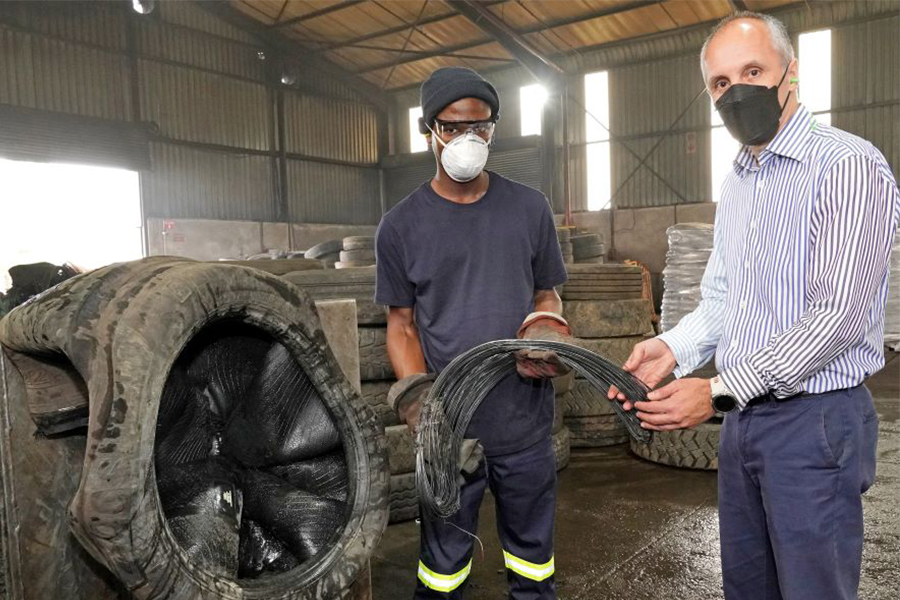Mathe Group has made a multi-million-rand investment in new equipment to extract “clean steel” from tyres for export to India and South Korea
Dr Mehran Zarrebini, CEO of Mathe Group, says that the clean steel investment, which includes the installation of a new clean steel mill with an automated packaging line and several de-beading machines, will boost earnings. Steel, which comprises 30% of each radial truck tyre, has been an unavoidable by-product that had to be removed before tyres could be reduced to rubber crumb for reuse. Now, this will become a valued second income stream, ultimately growing export earnings and generating more job opportunities.
Dr Zarrebini shared that when tyre recycling started in South Africa, the side walls of the tyres were cut off and sold for use in agriculture. Mathe Group introduced the current de-beading process in 2017, when the company moved to Hammarsdale. However, that process damages the geometry of the beads, making them difficult to bend, package and sell.
The new machinery removes the entire bead free of rubber and keeps it intact, meaning that steel material is then utilised in blasting applications as a substitute for virgin steel. Dr Zarrebini says that the price gleaned from this material is three times higher than that paid for scrap metal, with the bonus of additional rubber removed, boosting the amount of rubber recovered from each tyre.
The new debearding machines will replace existing equipment, which is oil-driven and costly to maintain, reducing both emissions and operating costs. “We are looking at material that could be potentially used in the local steel market, which is under huge pressure. Right now, no steel extracted from tyres is sold locally,” Dr Zarrebini explains.
Currently, the company ships the extracted steel to India, where it is cleaned before being shipped to South Korea, where it is used in the manufacture of goods such as ships or motor cars. The cleaning process will now take place in the company.
Dr Zarrebini says that the installation of a steel cleaning mill, which will reduce the rubber contamination from the current 10% to less than 2%, is part of a broader re-design of the production process and will include an in-built packaging line which will bag the steel and deposit it into an awaiting shipping container, which is then trucked to the Durban port. Increased capacity at the plant will see 108 tons (or a minimum of four containers) leaving Hammarsdale each week.
“The new steel processing system cuts a lot of cost from the system and adds both efficiency and a further 8% of rubber crumb to the process. Although steel wasn’t initially Mathe’s main income stream, with the escalating cost and complexity of doing business, it has become an important part of the business,” he explained.
The steel extraction equipment will be fully operational by January 2026.


















